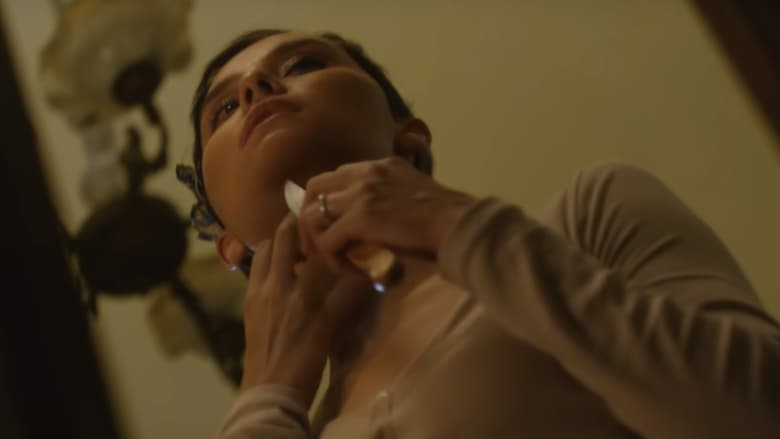What to Watch Verdict
'The Queen Of Black Magic' is this slithery serpent of a horror tale that's impossible to contain, starting slow but only ever increasing its dangers and grimness scene by scene.
Pros
- +
🚍 Furious and fatal folklore.
- +
🚍 Dreadful imagery.
- +
🚍 Insect usages [shivers].
Cons
- -
🚍 Is a steady, albeit slower build.
- -
🚍 Mostly CGI.
With talents like Timo Tjahjanto, Joko Anwar, and Kimo Stamboel, how lucky are we to be in an Indonesian horror upswing? The Queen Of Black Magic, Kimo Stamboel’s latest, plummets into the essence of ghost stories with further and fiercer unraveling. At first glance, architectures are familiar and spooky. As the harrowing tale unfolds, Joko Anwar’s script continues to double-down on mounting dread that never, ever, eases pressure on the gas pedal. I’d have loved a more focused effort on practical effects, and there are momentary doldrums, but still, what Stamboel accomplishes is right-evil and scary haunts of the mind, body, and soul.
Hanif (Ario Bayu) transports his family to the orphanage where he was once raised, now that the caretaker, Pak Bandi (Yayu A.W. Unru), has fallen ill. Anton (Tanta Ginting) and Jefri (Miller Khan) shuttle their significant others to the same location, where the men all met and grew together under Bandi’s protection. At first, their intentions are charitable, but as the couples and families hear stories told by current keepers Siti (Sheila Dara Aisha) and Maman (Ade Firman Hakim), childhood recollections conflict with historical recountings. The longer Hanif stays, the more tall tales clash with the collected evidence his children uncover. Is his former dormitory as innocent as remembered? Let’s ask the malevolent force from Hanif’s past that’s seeking vengeance!
Some might consider The Queen Of Black Magic a slower burn. When Hanif arrives at Bandi’s facility, presumptions are of a predictable ghost story where one of the workers, Ibu Mirah (Ruth Marini), still stalks the unhallowed grounds due to her obsession with ritual curses. For a while, this is true. Then Anwar’s script evolves, and morphs, and keeps transforming into something more inconsolably sinister until we’ve descended into Stamboel’s iteration of Hell on Earth. In a worse film, continued veering as the plot thickens would devolve into unintelligible sludge. Under Stamboel’s command, the boundaries of evil continue to redefine themselves.
For the adults, this means voodoo horrors prey upon the insecurities and sins of those who’ve come to Bandi’s aid. Whether that’s a lover with obsessive figure issues who begins “trimming fat” with a hunting knife, or conjured insectoids that wriggle under flesh with the utmost nauseating depictions of skin-crawling grotesqueries. Stamboel opts for digitized effects in these cases, situationally understood, but the essence of stomach-knotting distress doesn’t falter because of animated vileness. As the orphanage’s lurking apparition summons darker and more offensive threats, The Queen Of Black Magic asserts its traumatic staying power. Executions via scyths, squirmy-crawly attacks, and punishments fitting the most guilty parties.
As for the children who are present, including Hanif’s clever and aware son, Haqi (Muzakki Ramdhan), they’re the catalyst for “The Queen’s” return. As Hanif first represses, then confesses, his kin are merely bystanders who fall victim to the orphanage’s inescapable past. Neither Stamboel nor Anwar waver when it comes to adolescent endangerment, which turns pellet rifles and ghost stories against their intended audience. Haqi, so innocent and sincere, finds himself scurrying away from the vision of Ibu Mirah as she manifests in the gangly, nightmarish form bedtime stories describe. Anwar’s horror sensibilities sneak into Stamboel’s control, connecting Anwar’s hallway jolt in Satan’s Slaves to a wonderfully paralyzing TV set scream at the expensive of Haqi’s sanity. Adults are mutilated, and youngsters are tormented. That’s before Bandi’s tone-altering secret exposes, well, twisted intentions.
As stated before, Bandi’s past reconfigures so much of The Queen Of Black Magic in ways that might not sustain in laxer creepshow narratives. Instead, Hanif’s beliefs and actions come to a screeching halt as Anwar’s script redirects into newfound storytelling territories. It’s an awful lot for audiences to sustain, but works to accentuate the reasoning behind countless deaths and rationalizes a classified demon’s actions. We’re so quick to villainize the deceased, who cannot answer for themselves, that guilty perpetrators can wear masks while pointing the blame elsewhere. The same goes for gendered inequalities, where males can easily deflect accusations onto women who’re chastised like witches.
The Queen Of Black Magic is icky, frightening, and condemningly impure. Kimo Stamboel works within viable means to plunge disturbed characters into their unwitting fates. Periods of more recognizable fabled fearfulness are salvaged as Joko Anwar continues to raise the stakes in each plotted act, until we’re shoved into the gnashing mouth of madness. We stan a queen whose merciless damnation is highlighted by beheadings, acid burns, and wriggly minions, as much as we appreciate Stamboel’s relentlessness once climaxes start to climb upwards. Notes of Sam Raimi influence both physical self-defenses and psychotic breakdowns, but this is all Stamboel. Another memorable Indonesian genre title that marks the territory as one of horror’s hotbeds at the moment.
The latest updates, reviews and unmissable series to watch and more!
The Queen of Black Magic is part of our Nightstream coverage.
Matt Donato is a Rotten Tomatoes approved film critic who stays up too late typing words for What To Watch, IGN, Paste, Bloody Disgusting, Fangoria and countless other publications. He is a member of Critics Choice and co-hosts a weekly livestream with Perri Nemiroff called the Merri Hour. You probably shouldn't feed him after midnight, just to be safe.


